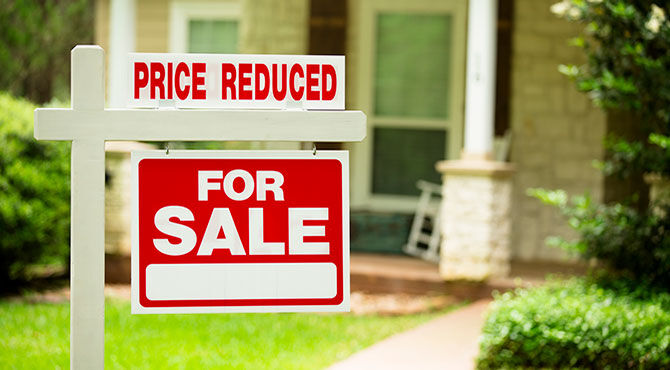Annual home prices dip for first time in 20 months
House prices across the UK fell in March for the first time in nearly two years, according to the latest index from the Nationwide Building Society.

More even growth across the country
The Nationwide report said that the rate of house price growth was now being spread much more evenly across the country.Robert Gardner, Nationwide chief economist, said that roughly half of regions across the UK had seen price growth accelerate, while the other half had seen a slowdown, narrowing the gap between the strongest- and the weakest-performing areas.“Interestingly, the spread in the annual rate of change between the weakest- and strongest-performing regions was at its narrowest since 1978 at 6.8 percentage points – the second smallest gap on record,” he said.“The South of England continued to see slightly stronger price growth than the North of England, but there was a further narrowing in the differential.”Even so, differentials in the actual price of homes remain marked. The £478,782 average in London compares to £127,921 in Northern Ireland. And while prices in the capital are almost 60 per cent higher than they were a decade ago, the averages in the likes of NE and NW England are still lower than they were in 2007.Related news:
- London slows as regional house market gathers pace
- BridgeStreet launches new Stüdyo concept in Paddington
- Bristol gets not a best place to live in UK
A wake-up call
Jonathan Hopper, managing director of Garrington Property Finders, commented, “Whether you regard it as a dive or just a dip, March’s abrupt reversal in house price momentum is a wake-up call.“It’s nearly two years since the month-on-month number was last in negative territory. But now, as then, the surprise fall in house prices was symptomatic of a listless market rather than a profound shift.“The market has become a muddled mix of extremes, with double-digit reductions going on at one end of the spectrum and gazumping at the other.“So it would be overly melodramatic to view the Nationwide’s latest data as a turning point. In reality, average house prices have been meandering for several months against the volatile and uncertain economic backdrop.“Buyer intent remains strong in many parts of the UK, but buyers have become acutely price sensitive. No one wants to buy a home only to realise they could have got it cheaper if they had waited – so on the front line, prospective buyers are scrutinising prices harder than ever.“Though Britain’s economic fundamentals remain robust, the Bank of England is clearly wrestling with the question of when, not if, to raise interest rates.“Rapidly rising consumer inflation and a gentle erosion in confidence are likely to leave the property market increasingly rudderless in coming months. Average prices will continue to creep up, albeit at a subdued pace as house price to earnings ratios begin to bite in many parts of the country.”Get access to our free Global Mobility Toolkit
©2024 Re:locate magazine, published by Profile Locations, Spray Hill, Hastings Road, Lamberhurst, Kent TN3 8JB. All rights reserved. This publication (or any part thereof) may not be reproduced in any form without the prior written permission of Profile Locations. Profile Locations accepts no liability for the accuracy of the contents or any opinions expressed herein.




























